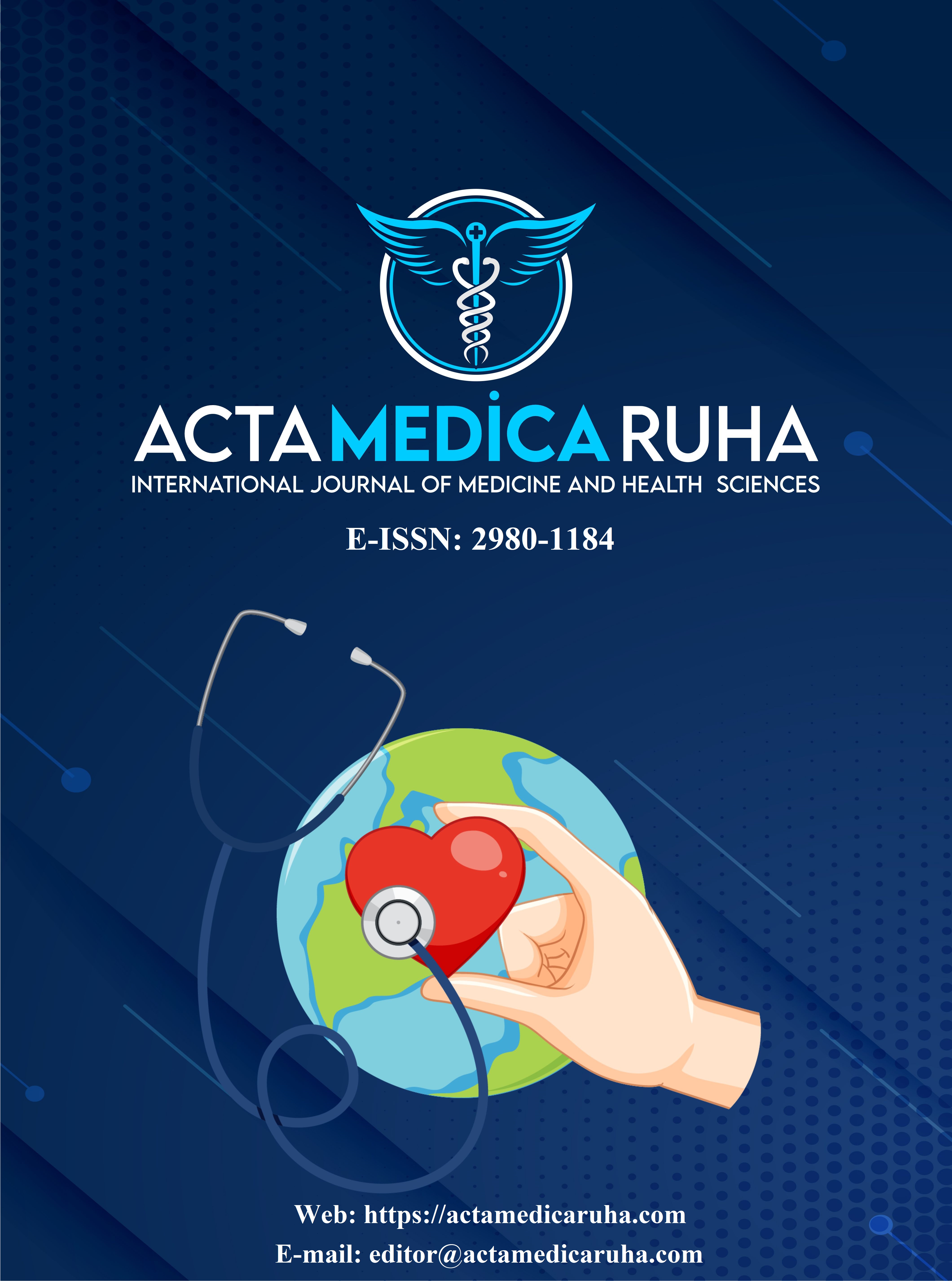Evaluation of Physiotherapy and Rehabilitation Undergraduate Students’ of Clinical Practice Skills
Research Article
DOI:
https://doi.org/10.5281/zenodo.15005876Keywords:
Clinical Practice, Quality Processes, Physiotherapy Education, Physiotherapy StudentsAbstract
Introduction: Clinical practice courses in physiotherapy are very important for training clinically competent physiotherapists. The quality of students' clinical skills training can be enhanced by rigorously monitoring and assessing their performance in these environments.
Objective: To evaluate the observations and practices in the course forms used in the clinical practice education of physiotherapy students.
Methods: In this descriptive study, the clinical practice education of fourth-year physiotherapy students was evaluated with forms filled out by 170 students in the 2022-2023 academic year.
Results: Students achieved the minimum number of observations and applications specified in the forms for each application. The observations, evaluations and applications made by the students in clinical practice are as follows: It was found that there were exercise applications with 10.37%, electrotherapy applications with 9.49% and some evaluation methods (pain, joint range of motion and muscle strength) with 5.4%. On the other hand, there was limited participation in some neonatal assessments/applications and some specific electrotherapy (biofeedback, iontophoresis and hydrotherapy) approaches. Students mostly participated in exercises for general physiotherapy and neurological rehabilitation units. The students used electrotherapy methods mainly in pediatric and orthopedic therapies.
Conclusion: The clinical practice forms tried for the first time in this study made a limited contribution to monitoring the clinical practice performance of students. Forms have the potential to provide feedback to students and educators in areas such as planning and supervision. Ensuring that students are involved in the development of the forms and getting their views can be useful.
References
Jensen GM, Nordstrom T, Mostrom E, Hack LM, Gwyer J. National Study of Excellence and Innovation in Physical Therapist Education: Part 1—Design, Method, and Results. Phys Ther. 2017;97(9):857-74.
Solvang PK, Fougner M. Learning from clinical placement experience: how do undergraduate physiotherapy students approach person-centered practice? Physiotherapy Theory Pract. 2023;39(12):2609-24.
Cruz EB, Caeiro C, Pereira C. A narrative reasoning course to promote patient-centred practice in a physiotherapy undergraduate programme: a qualitative study of final year students. Physiother Theory Pract. 2014;30(4):254-60.
Ennion L, Hess D. Recommendations of behavioural facilitators for success in a physiotherapy clinical practice module: Successful students' perspectives. S Afr J Physiother. 2020;76(1):1392.
Australian Physiotherapy Association (APA). Future of physiotherapy in Australia: A 10-Year vision policy white paper. Camberwell, VIC: APA, 2022.
de Caro JX, Jalovcic D. Assuring quality mechanisms in physiotherapy education–The physiotherapist education framework. Fisioterapia. 2023;45:3-5.
Fizyoterapi ve Rehabilitasyon Çekirdek Eğitimi Programı (FTRCEP). Available from: https://www.yok.gov.tr/Documents/Kurumsal/egitim_ogretim_dairesi/Ulusal-cekirdek-egitimi-programlari/fizyotreapi_cekirdek_egitim_programi.pdf.
Lekkas P, Larsen T, Kumar S, Grimmer K, Nyland L, Chipchase L, et al. No model of clinical education for physiotherapy students is superior to another: a systematic review. Aust J Physiother. 2007;53(1):19-28.
Chesterton P, Chesterton J, Alexanders J. New graduate physiotherapists’ perceived preparedness for clinical practice. A cross-sectional survey. Eur J Physiother. 2023;25(1):33-42.
Hayward LM, Black LL, Mostrom E, Jensen GM, Ritzline PD, Perkins J. The First Two Years of Practice: A longitudinal perspective on the learning and professional development of promising novice physical therapists. Phys Ther. 2013;93(3):369-83.
Wojkowski S, Norman KE, Stratford P, Mori B. Physiotherapy Students' Performance in Clinical Education: An Analysis of 1 Year of Canadian Cross-Sectional Data. Physiother Can. 2021;73(4):358-67.
World Physiotherapy (WP). Physiotherapist education framework. London, UK: World Physiotherapy; 2021.
de Almeida PMD. Innovation in physiotherapy education-guiding principles. Fisioterapia. 2023;45:7-9.
Deorukhkar S, Khatri SM, Kindblom K. Quality assurance system in Indian physiotherapy education: A missing link? Arch Med Health Sci. 2013;1(2):171-7.
Timmerberg JF, Chesbro SB, Jensen GM, Dole RL, Jette DU. Competency-based education and practice in physical therapy: it's time to act! Phys Ther. 2022;102(5).
Mills J-A, Middleton JW, Schafer A, Fitzpatrick S, Short S, Cieza A. Proposing a re-conceptualisation of competency framework terminology for health: a scoping review. Hum Resour Health. 2020;18(1):15.
Crawford BF, Borawski EA, Sinclair AL. Alignment of the Physical Therapist and Physical Therapist Assistant Clinical Performance Instrument Content to Current Practice Standards. Human Resources Research Organization; 2022.
Seidel A, Chang L, Greenberg A. Therapeutic modalities; 2021 [updated 2021; cited 2024 Jan 23]. Available from: https://now.aapmr.org/therapeutic-modalities/
Crawford BF, Sinclair AL. Physical therapist and physical therapist assistant clinical performance instruments: Validation Study. 2023.
American Physical Therapy Association (APTA). Using the APTA physical therapist clinical performance instrument for students: A self-guided training course; 2018.
Sinclair AL. Research studies to support reliability and validity of the PT CPI and PTA CPI. Human Resources Research Organization; 2020.
Wetherbee E, Dupre A-M, Feinn RS, Roush S. Relationship between narrative comments and ratings for entry-level performance on the clinical performance instrument: A call to rethink the clinical performance instrument. J Phys Ther Edu. 2018;32(4):333-43.
Sadler I, Reimann N, Sambell K. Feedforward practices: a systematic review of the literature. Assess Eval High Edu. 2023;48(3):305-20.
Lo K, Curtis H, Keating JL, Bearman M. Physiotherapy clinical educators’ perceptions of student fitness to practise. BMC Med Edu. 2017;17(1):16.
Crawford BF, Sinclair AL. Intended Uses of the Physical Therapist and Physical Therapist Assistant Clinical Performance Instruments. Human Resources Research Organization; 2022.
Kennedy E, Bax J, Blanchard P, Drinkwater K, Dysart A, Horan K, et al. Clients and conditions encountered by final year physiotherapy students in private practice. A retrospective analysis. Physiotherapy Theory Practice. 2022;38(13):3027-36.
Alcan V. Fizyoterapi ve rehabilitasyon eğitiminde kanıta dayalı uygulama yaklaşımının sistematik olarak gözden geçirilmesi. Sağlık Bilimlerinde Eğitim Dergisi. 2021;3(1):13-23.
Candiri B, Burcu T. Fizyoterapi ve rehabilitasyon bölüm profilinin yıllara göre incelenmesi. International Journal of Social Humanities Sciences Research. 2023;10(91):96-101.
Korkmaz M, Çoban HO, Alkan H. Yükseköğretim kalite güvencesi sisteminde öğrenci memnuniyetinin değerlendirilmesi: Isparta Uygulamalı Bilimler Üniversitesi Orman Fakültesi Örneği. Bartın Orman Fakültesi Dergisi. 2023;25(3):479-91.
Roach KE, Frost JS, Francis NJ, Giles S, Nordrum JT, Delitto A. Validation of the revised physical therapist clinical performance instrument (PT CPI): Version 2006. Phys Ther. 2012;92(3):416-28.
Sevenhuysen SL, Haines T. The slave of duty: Why clinical educators across the continuum of care provide clinical education in physiotherapy. Hong Kong Physiother J. 2011;29(2):64-70.
Bearman M, Molloy E, Ajjawi R, Keating J. ‘Is there a Plan B?’: clinical educators supporting underperforming students in practice settings. Teach High Edu. 2013;18(5):531-44.
Sevenhuysen SL, Farlie MK, Keating JL, Haines TP, Molloy E. Physiotherapy students and clinical educators perceive several ways in which incorporating peer-assisted learning could improve clinical placements: a qualitative study. J Physiother. 2015;61(2):87-92.
Steenbruggen RA, Maas MJM, Hoogeboom TJ, Brand PLP, van der Wees PJ. A framework to improve quality of hospital-based physiotherapy: a design-based research study. BMC Health Serv Res. 2023;23(1):34.
Lombard E, Kerr G, Murphy N. The value of quality improvement training for physiotherapy in a large teaching hospital. Physiother. 2016;102(Suppl 1):e194.
Struessel TS, Sleddens NM, Jones KJ. Quality Improvement Content in Physical Therapist Education: A Scoping Review. Phys Ther. 2022;102(7):1-10.
Downloads
Published
How to Cite
Issue
Section
License
Copyright (c) 2025 Acta Medica Ruha

This work is licensed under a Creative Commons Attribution 4.0 International License.









